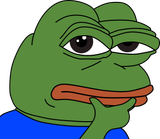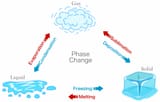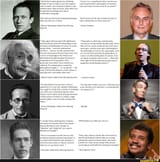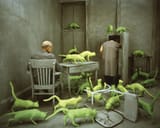>>16605437
Yep, it all loops around.
Philosophy/psychology is applied biology which is applied chemistry which is applied physics which is applied philosophy/psychology. The mind they pokes at nature is first formed by nature.
Metaphysics is just mega physics. Math goes along with everything. Inseparable.
>>16605318
It’s the same with magic and religion. It’s all just a product of the mind’s eye. It is all exposure logic. A black box that is white within—there is no bigger black box than the deep black abyss that is space/life.
There is only one set of Truths out there. Everything else is not that, or a product of ignorance, the imagination, religion, etc.
It’s scary to see ignorance outnumbering Truth. You can interpret stars in any way you wish, like the ancients did, forming faith.
Science—natural philosophy—at least *aims* to be honest, and not dishonest like theistic philosophy: where faith is seen as equal to truth (a paradox).
Only faith in the Truth has truth, as faith does not require truth.
I find phrases like “it’s magic! we cannot explain it!” ironic when science is, in theory, Truth. So how is empirical science not True magic? The Truth to it? I don’t consider magic (“magic”) to be purely a matter of ignorance, since there is still wonder (not the “I wonder…” wonder) in knowing a thing for True. To appreciate. “It’s wonderful!”. A chemist is in his right to see chemistry as magic.
But, I still concede that, if mystery and wonder (“I wonder…”), horror or dissent, etc, lead up to “magic”, then ignorance is the greatest magic of all, and ignorance is surely a form of art.
The universe—existence itself—is both a stage and a magician. What do physicists say when they confront something new?
— “Hmm, that’s weird, I wonder how it did that…” Does this not sound familiar?
Physicists are not only in denial about philosophy, they are in denial about the magic/mystery all around them.















